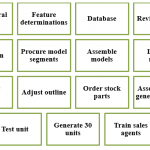How to motivate school children?
How to motivate school children?
By: Dr. Najam-ul-Hasan
First of all what we have to understand is that there is no single way or solution to motivate school children. Why I say so? Because it involves many different factors and sections to be understood and dealt with properly.
Motivation, intrinsic and extrinsic, is an important factor in gaining and maintaining the success for students throughout their education, and teachers along with other stakeholders play an essential part in providing and encouraging that among students. Sounds easy, doesn’t it? Not really!!
There are individual differences -different students are motivated differently- and it takes time and a lot of effort to learn to get a classroom full of kids enthusiastic about learning, working hard, and pushing themselves to excel. Mostly, when I teach educational psychology in the class, I ask a question whether teaching is an art or science?! Some of my students think that teaching is science and some otherwise, it is a combination of both though. A teacher should know the art of teaching and how to teach as well as should work as a scientist and try out different methods that suit his/her students. A teacher who uses same methods for different students is a failed scientist who despite constantly failing to invent a new thing never tries to change things. School environment, teacher characteristics, and curriculum are some of the main components which need to be entertained and dealt with care. Anyways, there are some “general tips” but those tips may work slightly or not at all when implemented without understanding and singling out the specific issues uniquely related to particular students.
Here are some general tips, will try to keep them as simple as possible:
1. There should be clearly defined objectives when teaching anything.
2. Since not all the students respond to lessons similarly, teachers should try to mix up the lessons so that students with different preferences will each get time focused on the things they like.
3. Create a positive competitive environment, which can be achieved using different activities, such as games related to the study material/syllabus, or provide some other ways to give opportunities to the students to exhibit their knowledge.
4. Create some assignments or games where students can have collaborations (can work together) such as give them some projects no matter how simple and basic, this social interaction can keep them on their toes about the things in the classroom. But having said that the different groups need to be made with care so that they have balance participation.
5. Everyone likes some reinforcement so it will be a good idea to provide some expectations of rewards or actual rewards to the students.
6. In order to keep students motivated, it is also important to create opportunities for different kids to have some responsibilities in the classroom.
7. Praise is the most important factor in encouraging students or even adults. So teachers or otherwise should try to provide students with praise.
8. Parents, siblings or teachers should also try and help students self-reflect. Everyone wants to succeed but they need a way to figure out what skills or steps they need to get to that success. So, one way of motivating students is to get them reflect on their strengths and weaknesses.
9. This might sound unrelated but the amount of motivation and enthusiasm the teachers have will also influence the student motivation.
10. Another factor related to teacher characteristics is that a teacher should try to know his/her students, try getting to know their interests which would allow him/her to plan lesson according to the needs and interests of students to keep them involved.
11. Set goals for students and push them to do more and more to inch towards the desired goals. But also keep it in mind that those goals should be set keeping in mind the developmentally appropriate abilities and capabilities of the students.
12. Some students who struggle to go along with the class should not only be provided with the feedback but also ways to improve those things. Teacher and parents can help students to learn and point out the things where students went wrong and how can they improve them next time.
Well, I can keep on going with these general tips but ….. One last thing (and very important especially for young students) is that try to avoid monotonous lecturing.
As far as specific tips are concerned, we need to focus on specific needs and problems faced by different students. Since I already mentioned in my earlier lines that there are different factors involved in children’s education, and for that matter adult education, we have to understand the needs and interests of children with motivation and learning issues and deal with it accordingly.






